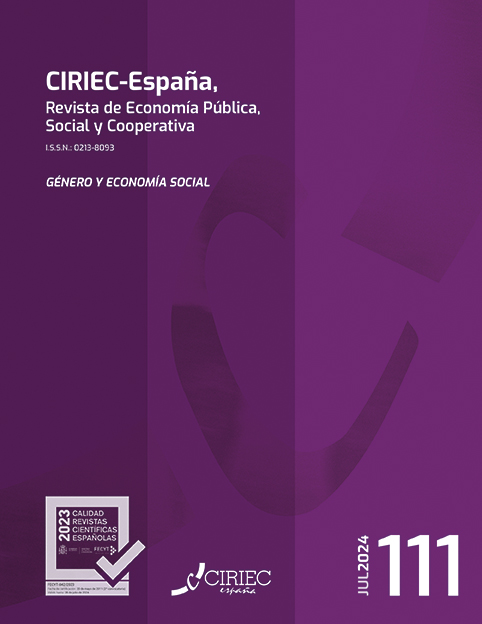Work-family conflict in social economy organisations. Individual differences in the employees’ demographic profile
DOI:
https://doi.org/10.7203/CIRIEC-E.111.28026 Abstract
Abstract
The changes and diversity in the demographic profile of the Spanish workforce have sparked a great deal of interest, particularly in human resource management. Examining the intricate balance that individuals and organisations strike between family, gender, and work responsibilities becomes particularly crucial, especially in the context of families with children. The conflict between work and family may originate in either domain. Thus, the direction of the conflict becomes relevant at both a personal and organisational level, to understand whether work interferes with family (WFC), or family interferes with work (FWC). However, in social economy organisations these conflicts might be exhibited differently, given how these types of organisations tend to be more horizontal, social, feminine, and participative. This means that the conflict between family and work could be less harmful. With this in mind, our goal was to analyse whether children, based on their age, influence work-family conflict, and to assess any gender differences. Results revealed some differences regarding the age of children in the work-family and family-work conflict between women and men. Practical and theoretical implications are discussed throughout the paper.
 Downloads
Downloads
Published
How to Cite
-
Abstract207
-
PDF126
-
XML0
Issue
Section
License
The authors of the articles accepted must renounce to the copyright ot its Spanish / English version and authorize the review to publish their articles on its Web page as well as reproduced them in different scientific data base, as established by law. Authors can deposit their article in their own personal and institutional sites.



